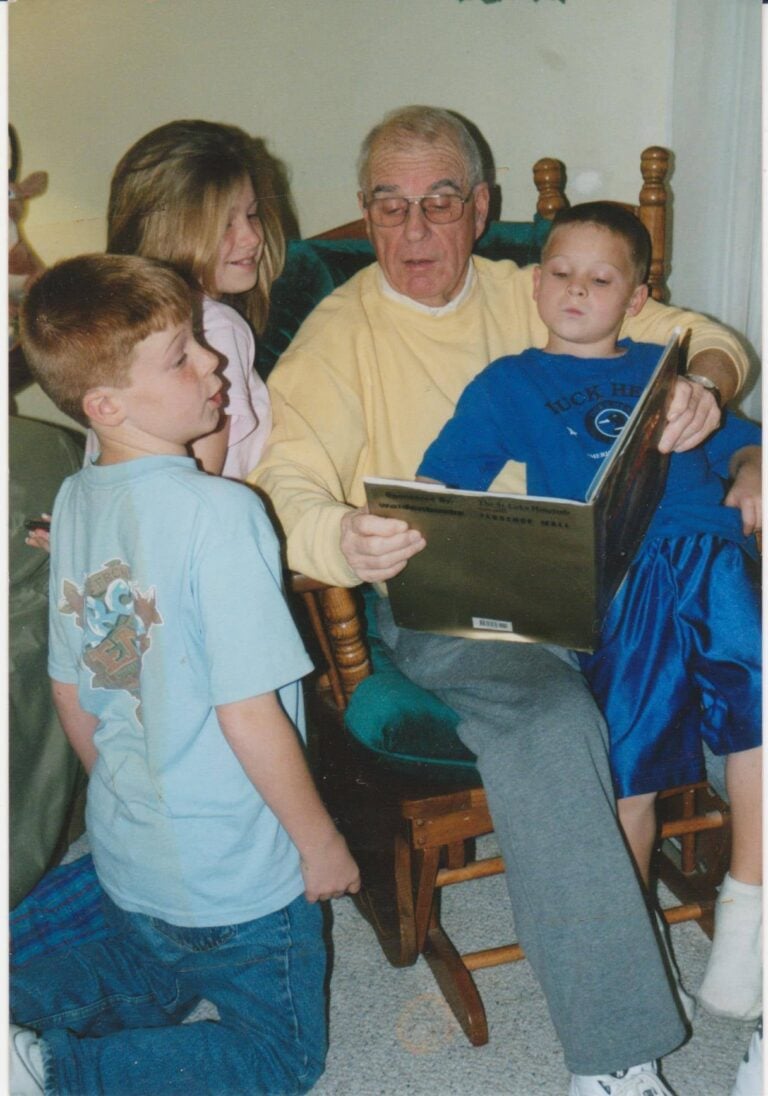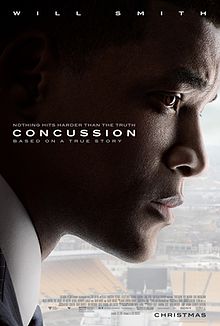I’m not qualified to say whether the Academy Awards people were wrong in failing to nominate Will Smith for the best actor award for his work in “Concussion,” mainly because I’ve haven’t seen the performances that did get the Oscar nominations.
But I will say this: If there are five better acting jobs out there, I definitely want to see them all because Smith was brilliant in his portrayal of Dr. Bennet Omalu, the forensic pathologist from Nigeria who became the National Football League’s worst nightmare.
Working in a hospital emergency room in Pittsburgh, it was Dr. Omalu’s fate to perform the autopsy on Mike Webster, the Hall of Fame center on the immortal Pittsburgh Steelers’ NFL champions of the 1970s and early ‘80s. Webster was found dead in his truck, victim of a heart attack.
At the time he did the autopsy, Dr. Omalu had no idea who Webster was. He wasn’t a football fan and knew little, if anything, about the NFL. So he had no idea his findings would lead to a national debate on the risks inherent in football and other contact sports.
It was Dr. Omalu’s conclusion that Webster suffered from Chronic Traumatic Encephalopathy (CTE), which may be caused by repeated blows to the head. The condition can lead to a kind of dementia characterized by memory loss, aggression, confusion, and depression.
Over the next several years, Dr. Omalu autopsied three more former NFL players – Terry Long, Justin Strzelczyk and Andre Waters. His conclusion was that each suffered from a condition very similar to Webster’s.
At first the NFL tried to ignore Dr. Omalu. But increasing awareness over the problems of concussions led the league to relent and allow his findings to to be presented at a symposium on player safety. However, instead of permitting Dr. Omalu to speak in person, the league insisted that his findings be presented by Dr. Julian Bailes, a former Steelers team doctor who had come to believe in Dr. Omalu’s research and findings.
Inspired by Dr. Omalu’s findings, a group of former players took the NFL to court on the grounds that the league knew about the dangers of CTE, but didn’t share the information with the players. This led to a lot of court wrangling that ended when the NFL finally committed to financing a massive research project on player safety in general and brain injuries in particular.
The movie blames NFL pressure and scrutiny for forcing Dr. Omalu’s wife to have a miscarriage and forcing the couple to flee Pittsburgh and move to California. I can’t say for sure, but this smacks a bit of Hollywood overkill. I’m not sure the NFL is as sinister as the movie portrays it to be.
But after Omalu had moved to California, it’s true that one of his leading antagonists, Dave Duerson, who had been an NFL player before becoming a league executive, committed suicide. His autopsy revealed symptoms of CTE.
The disease also figured in the 2012 suicides of Jovan Belcher, a Kansas City Chiefs linebacker who killed himself as the team’s training facility after killing his girl friend in their apartment, and Junior Seau, the Hall of Fame linebacker with the San Diego Chargers.
Smith’s performance as Dr. Omalu is so powerful, and the movie’s message so important, that Time magazine put the actor on its cover. So far, however, the movie hasn’t been a box-office smash, probably because the football-loving public that worships the NFL doesn’t want to hear any bad news about the sport that owns its hearts and minds.
Nevertheless, the movie is resonating with at least one important demographic: Mothers with young sons who might want to play football. As various newspaper articles and TV interviews have shown, more and more mothers are now either discouraging their sons from playing football or simply forbidding it.
The truth is, no matter how the NFL changes its rules or institutes new safety procedures, it’s impossible to have football without violence. And since the brain sloshes around in the cranium virtually unprotected, it’s impossible to avoid repeated trauma. In the past, it was said that players who lost their bearings on field were “dinged up,” or “punch-drunk.”
Obviously, CTE is not an inevitable result of playing football. The vast majority of former players live normal lives after they give up the sport. Yet as the bodies of more and more former players are autopsied, the evidence is mounting that undiagnosed CTE is a much bigger problem than the NFL originally wanted anybody to believe.
Franky Minniefield, the Lexington businessman and former All-Pro cornerback with the Cleveland Browns, has an interesting take on the crisis. He believes the NFL should consider going back to leather helmets and minimal face guards. As it is now, the helmets are so hard and the face masks so big that many players look like Darth Vader.
“With those helmets and face masks, the players turned their heads into weapons,” Minniefield said. “But if you take that away, and players come to understand they can get broken noses or worse if they aren’t more careful, that would eliminate a lot of concussions.”
But would the players and the public accept that? They like the Darth Vader look. They like the ground-shaking collisions, and the more violent, the better. The anticipation of violence, for many NFL fans, is just as addictive as the betting line. And surely we all know that the league promotes its players as larger-than-life super heroes, almost science-fiction characters, every way it can.
Although a lot of ex-players and fans have boycotted the movie on the grounds that it hurts the game, the opposite is actually the truth. The movie shines light in the game’s dark corners. It reinforces the necessity of new changes such as having players knocked woozy undergo a “concussion protocol” before being allowed to return to the game.
Whoever wins the Oscar for Best Actor in a leading role, he won’t have something that belongs to Will Smith – the satisfaction of knowing you did great work in a movie that addressed an important issue and might even help save some lives.
Billy Reed is a member of the U.S. Basketball Writers Hall of Fame, the Kentucky Journalism Hall of Fame, the Kentucky Athletic Hall of Fame and the Transylvania University Hall of Fame. He has been named Kentucky Sports Writer of the Year eight times and has won the Eclipse Award twice. Reed has written about a multitude of sports events for over four decades, but he is perhaps one of media’s most knowledgeable writers on the Kentucky Derby.
























I invite readers to read Is This The End of the Beginning of Football? published August 27, 2014, at The Examined Life and found at alansacker.blogspot.com.